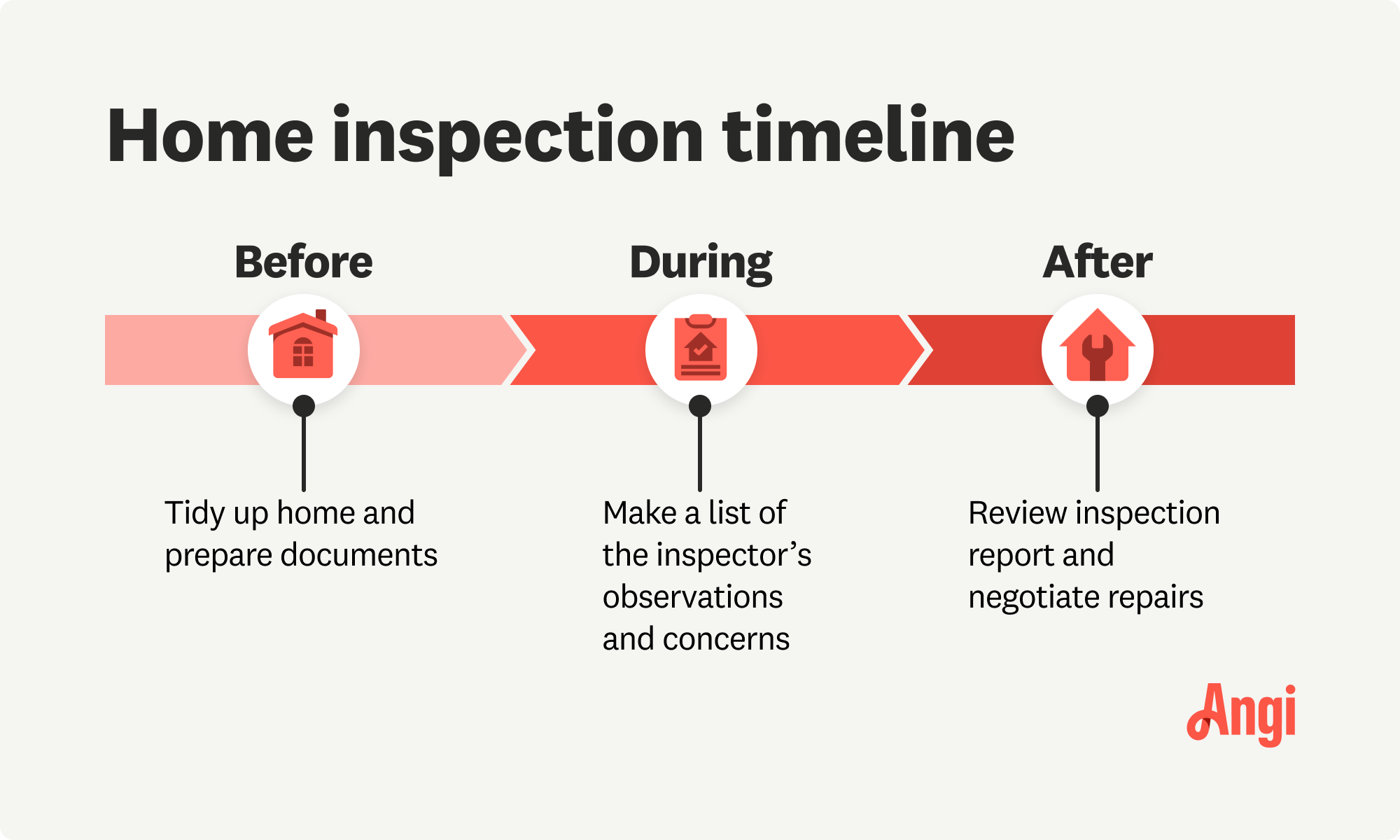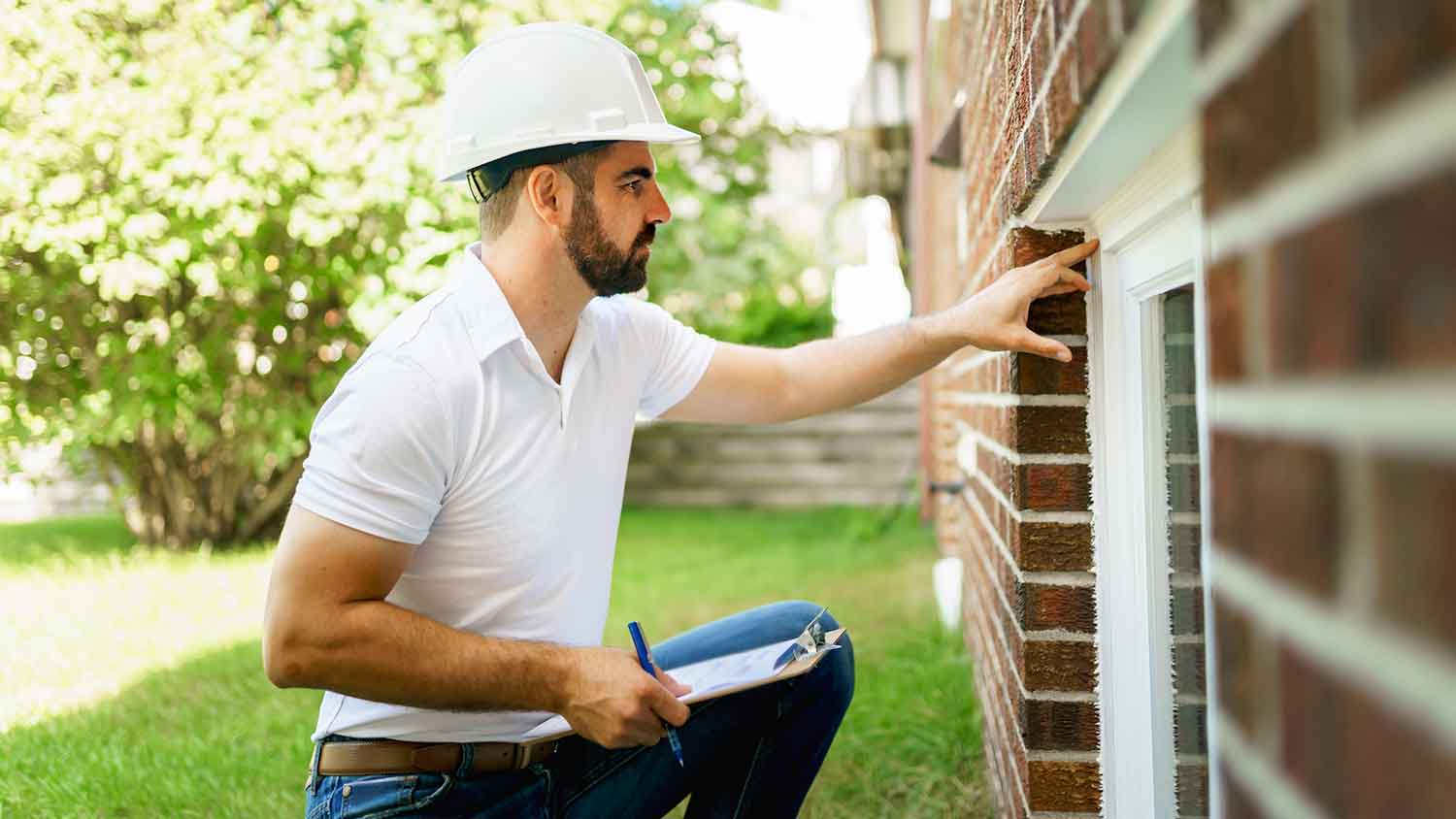
Drone roof inspection costs vary depending on the roof’s size, complexity, and material. Use this guide to budget for a drone roof inspection.
Crack the code on when you should get a home inspection


Home inspections usually happen after an offer on a new home is made.
Pre-listing inspections can identify problems in advance of selling a home.
A failed inspection may not be a dealbreaker.
The home inspection report summarizes the evaluation and lists repairs needed.
A home inspection is a routine physical for your potential new home. But when entering the complex world of real estate, one question often arises: When's the right time to get a home inspection? We’re unraveling this mystery to help you figure out if you should cue the home inspector before or after making your purchase offer. We'll break down the nitty-gritty of what a home inspection involves, how to hire a home inspector, and how it can be a game-changer in your buying journey.

Deciding to conduct a home inspection before or after making an offer is an important decision in the real estate process. Getting an inspection before making an offer provides valuable insights into a property's condition, allowing you to make informed negotiations and avoid surprises later on.
On the other hand, opting for an inspection after your offer is accepted provides for a cleaner, more timely transaction. The timing comes down to the buyer's risk tolerance, market conditions, and desire for negotiating power vs. a streamlined buying process.
The inspector saved us from walking into something unprepared and made me realize that if I ever sell a home, I will have the home inspected before I put it on the market so I can know what the issues are that need to be resolved before it goes into negotiation with the buyer.
— Christi C., Texas House Detectives, San Antonio, TX
In a competitive market with multiple offers, a buyer may opt for a pre-offer inspection to present a more substantial offer upfront. This strategy demonstrates seriousness and can give the buyer an advantage by allowing them to submit a cleaner, non-contingent offer, potentially appealing to the seller and increasing the chances of securing the property.
However, a home inspection almost always occurs after an offer has been made and accepted for three compelling reasons:
Inspecting after the offer allows the potential buyer to evaluate the property comprehensively before finalizing the purchase.
Conducting the inspection after an offer avoids unnecessary expenses for the buyer if the deal falls through.
It can streamline the process and save time by ensuring the parties are genuinely interested in moving forward before investing in the inspection.

A home inspection is a critical step designed to thoroughly evaluate a property's condition. It helps buyers and sellers make informed decisions regarding the transaction. A standard home inspection often includes:
Structural assessment: Foundation, walls, ceilings, and roofing structure
Electrical systems: Wiring, outlets, circuit breakers, and potential safety hazards
Plumbing system: Pipes, fixtures, water heater, and drainage
HVAC systems: Heating, ventilation, and air conditioning systems
Roof and attic: Roof condition, insulation, ventilation, and potential leaks
Exterior evaluation: Siding, windows, doors, and overall condition of the exterior
Interior inspection: Flooring, walls, ceilings, and other interior elements
Appliances: Assessment of included appliances for proper functionality
Insulation and ventilation: Checking insulation, attic, and ventilation systems for efficiency
Property grounds: Assessment of drainage, landscaping, and potential issues in the surroundings
Safety features: Examination of smoke detectors, carbon monoxide detectors, and other safety equipment
Pest inspection: Identifying signs of pest infestations or damage
A pre-listing home inspection is a proactive assessment of a property's condition conducted by the seller before listing the house on the market. Sellers hire a certified home inspector to evaluate the home's structural and mechanical elements, identifying any issues or needed repairs.
The goal is to identify potential problems in advance, allowing sellers to address issues, make necessary repairs or improvements, and present the property to potential buyers in the best possible light. This upfront transparency can instill confidence in buyers and streamline the selling process, potentially leading to a smoother transaction.
The home inspection report serves as a roadmap for navigating the complexities of the property purchasing process. It’s a vital document summarizing the findings of a property evaluation. Typically, it includes details about the property's condition, highlighting any issues discovered during the inspection. It provides insights into potential repairs or maintenance, helping buyers make informed decisions.
The report features photographs and descriptions of problem areas. It may also outline recommendations for further specialized inspections if required. Receiving and reviewing the report allows buyers to negotiate repairs or pricing adjustments with the seller.
Several actions can be taken if a home inspection reveals significant issues and the property fails to meet expectations.
First, discuss the findings with the seller and negotiate potential repairs or a reduction in the sale price to cover the cost of necessary fixes.
Alternatively, you may walk away from the deal, especially if the issues are deal breakers or the cost of repairs outweighs the benefits.
A failed inspection isn’t always a bad thing; it can actually guide you toward a more informed decision about your potential investment and save you from major repairs down the road.
"Usually the confusion comes near the end because we have pointed out so much stuff, both good and bad, that homeowners just feel overwhelmed. And that's when I also have to stop and say with the size of this home and what we found, your reports going to be about 80 pages...So don't feel like you have to memorize everything because you don't. It'll all be in the report."
— John Brewster, Home Inspector, True North Home Inspections

Finding a knowledgeable and reputable home inspector near you ensures you’ll get a comprehensive property assessment. Start by seeking recommendations from trusted sources such as real estate agents, friends, or family. Verifying the inspector's credentials is essential, as it ensures they are licensed and adequately trained.
Experience matters, so opt for an inspector with a proven track record and a solid portfolio of completed inspections. Ask about the inspection process and the depth of their evaluation. Practical communication skills and the ability to explain findings are necessary attributes. Note that who pays for the home inspection depends on who requests it. This is usually the buyer. Also, the home inspection cost and attic inspection cost will vary based on your location, the inspector’s experience, and other factors.
From average costs to expert advice, get all the answers you need to get your job done.

Drone roof inspection costs vary depending on the roof’s size, complexity, and material. Use this guide to budget for a drone roof inspection.

If you’re buying a home, having an inspection offers reassurance that it’s in good condition. How much a home inspection costs varies depending on the home's size, age, condition, and location.

Even though you may be able to get home insurance without one, an inspection is usually worthwhile. Learn more.

Use this comprehensive mobile home inspection checklist to ensure your home is safe.

Thinking about buying a condo? Use this comprehensive condo inspection checklist before you seal the deal.

Learn about mobile home inspection costs and some additional costs you might have to pay so you can budget before moving in or closing on your new home.